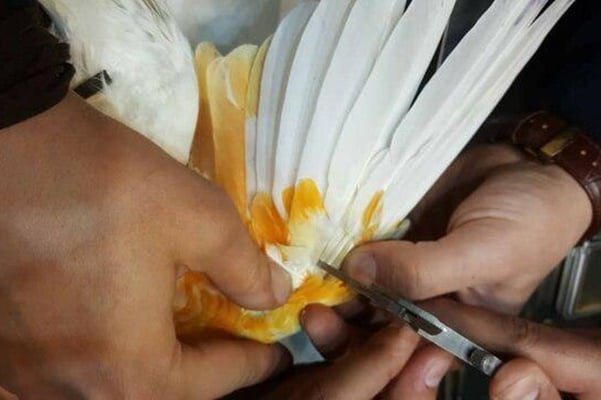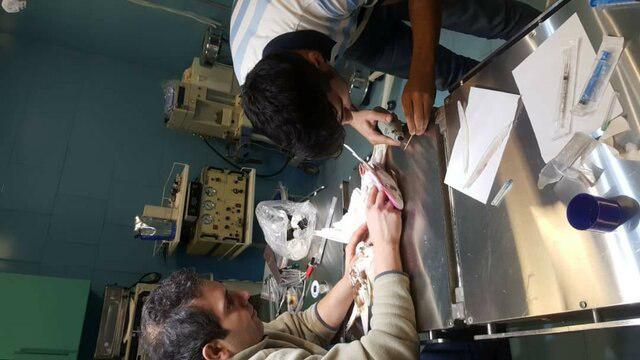This is the first time that an Iranian team becomes involved in feather transplant in the country.
Saeed Yazdani-Nia, an Iranian vet leading the feather transplant project, says healing the wounds of feathers and the quills, in particular, is overwhelmingly difficult because the birds can’t be allowed to get back to the nature before the healing process is completed and the feathers grow enough.
Birds could be healed through various methods due to the type and grade of the wounds they sustained. There are various methods to perform surgeries and hold special cares before full healing.
“However, before the healing process is completed and the vets consider the birds healthy, there would be no chance for them to get back to the nature even if they have undergone the lengthy recovery process to overcome the first signs of the wounds like those create by bullet hit or bone fracture,” he noted.
Yazdani-Nia went on to say that the process to have the feathers grown enough takes about 12 months.
Feather transplant is a new way to remove the problems created due to long and harsh captivity of birds. British and Australian veterinarian teams have already performed the transplant successfully.
The Iranian vets managed to do the transplant successfully through three various technics: Autograft, Allograft and Xenograft.
The transplants were done on a grey parrot and two pigeons.
The birds underwent and passed a number of tests like bio-mechanical test of feathers.
It’s expected that transplant surgeries could be made on a growing number of wounded birds in the near future. It’s hoped that through the new method, more and more birds could be protected against the dangers from the nature.

